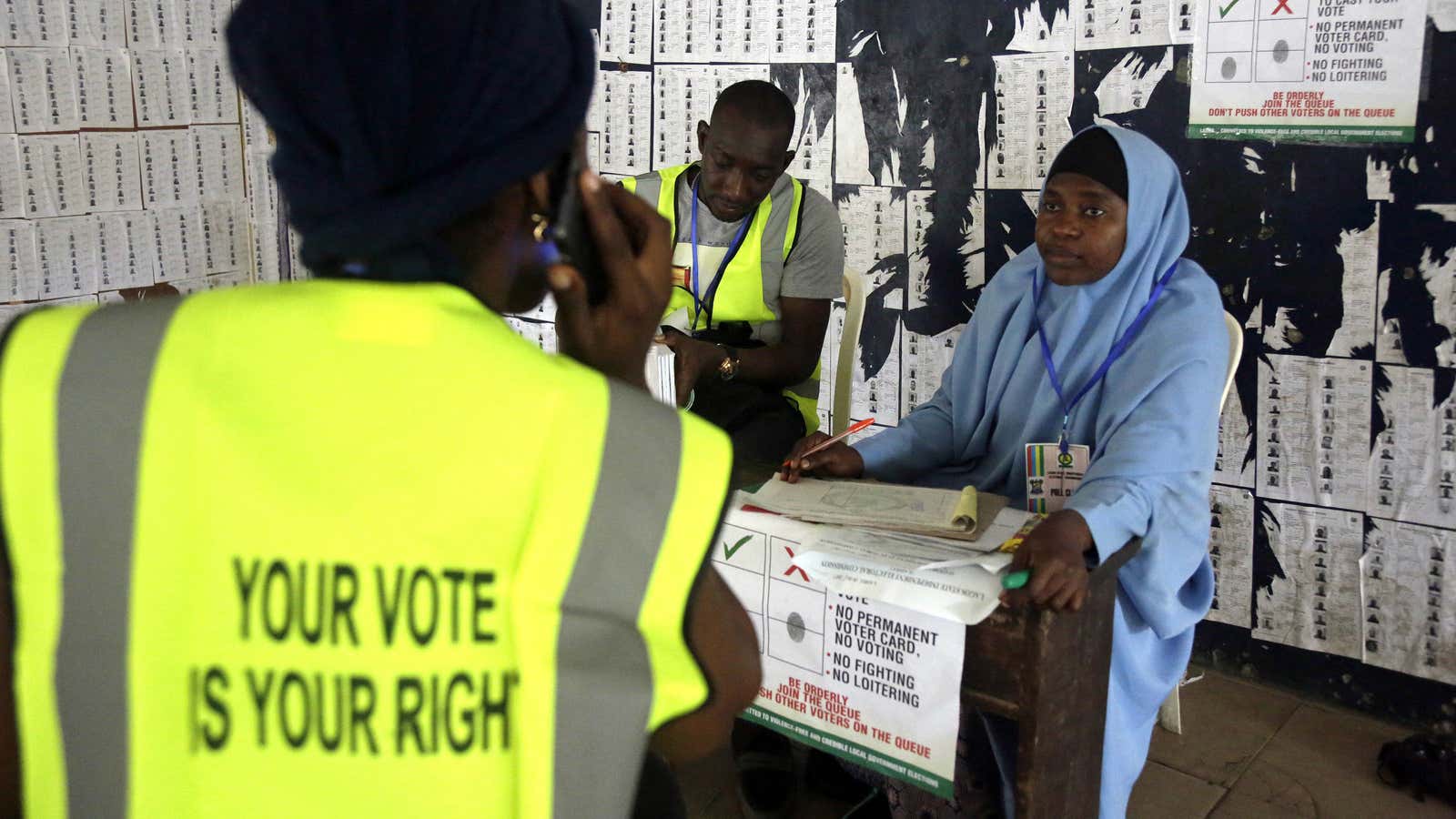These days, having Facebook and national elections in the same sentence inspires more questions than confidence.
Over the past week, as the extent of Cambridge Analytica’s data harvest has become clearer, Facebook has faced severe questions over its own data policies. In his first public statement since the news of Cambridge Analytica’s collection of Facebook data, Mark Zuckerberg hinted at being open to regulation for the social network.
In recent days, Nigeria, Facebook’s largest market in Africa, has also popped up in Cambridge Analytica-related news with reports that the company attempted to sway Nigeria’s presidential elections in 2015, with hacked emails of president Muhammadu Buhari, then the leading opposition candidate. The firm was allegedly paid £2 million ($2.8 million) by an unnamed Nigerian billionaire to “orchestrate a ferocious campaign” against Buhari.
It’s unclear how much of Cambridge Analytica’s work in Nigeria involved harvesting Facebook data locally. But the timing of these reports could not have come at a worse time with Nigeria’s general elections now less than a year away. Just last month, Facebook offered to work with Nigeria’s electoral commission “on voter education” as it did in Kenya last year in response to the prominence of fake news on its platform. But Nigeria’s political elite, who have typically been distrusting of social media and have attempted to regulate it, may not be as welcoming. As a repercussion, it’s likely that news of Cambridge Analytica’s use of Facebook data may undermine the social network’s public policy work.
Facebook’s prominence in Nigeria’s political circles has steadily grown since the turn of the decade. Back in 2010, former president Goodluck Jonathan chose the platform to first announce his plans to run for the presidency and, as part of its public policy work, in 2015 Facebook also partnered with Nigeria’s senate to school lawmakers on how to use the platform to engage their constituents.
